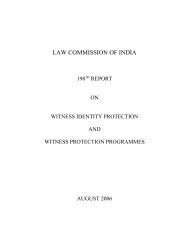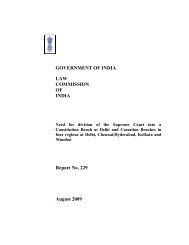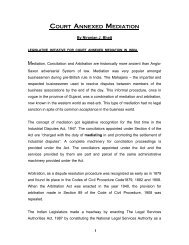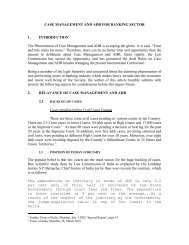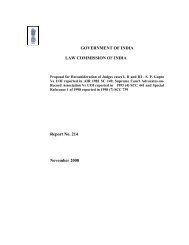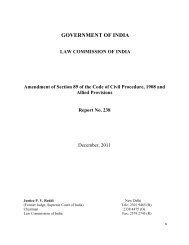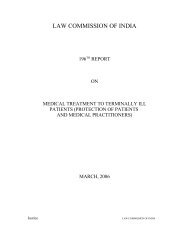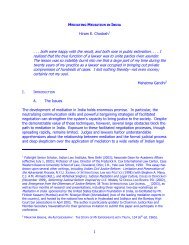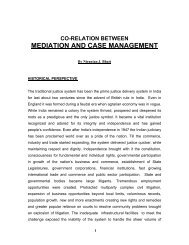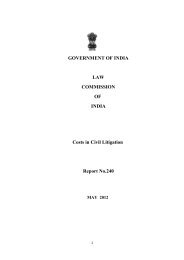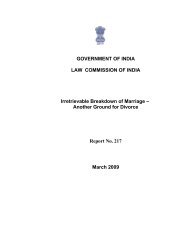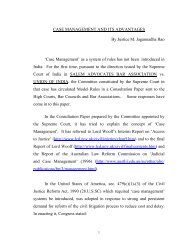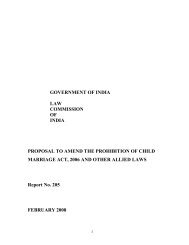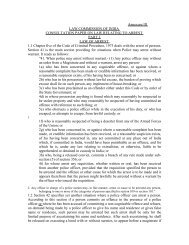The Legal Education - Law Commission of India
The Legal Education - Law Commission of India
The Legal Education - Law Commission of India
Create successful ePaper yourself
Turn your PDF publications into a flip-book with our unique Google optimized e-Paper software.
25“In the field <strong>of</strong> legal education, there was, thus, a dilemma <strong>of</strong> dualresponsibility <strong>of</strong> the BCI and UGC. <strong>The</strong> CDC in the eighties wereaware <strong>of</strong> this difficulty and suggested certain ways and means tosolve the problems arising from the dual responsibility and called formore interaction, in the form <strong>of</strong> information sharing andconsultation, between UGC and BCI. It is significant that BCI hadan open mind when they set out in 1995 for a reform. <strong>The</strong>yconsulted the universities and the UGC law panel while formulatingthe reforms for LL.B. courses.”<strong>The</strong> Report, however, says (page 2):“Although this cannot be described as closer interaction, the gaps incommon endeavors between BCI and UGC for reforms in legaleducation were being filled. It is significant that besides asking t<strong>of</strong>ollow CDC Report in the preparation <strong>of</strong> Syllabi, BCI resolved toaccept some <strong>of</strong> the courses recommended by CDC. Environmentallaw, human rights law and consumer protection laws were madecompulsory subjects. <strong>Law</strong> and poverty, comparative law, insurancelaw, law and medicine, women and the law and intellectual propertywere made optional papers. Administrative law and labour law werepromoted to the status <strong>of</strong> compulsory courses.”<strong>The</strong> CDC Report <strong>of</strong> 2001 <strong>of</strong> UGC thus accepts that there has been someconsultation but it says that ‘closer interaction’ is necessary between theBCI and UGC.



